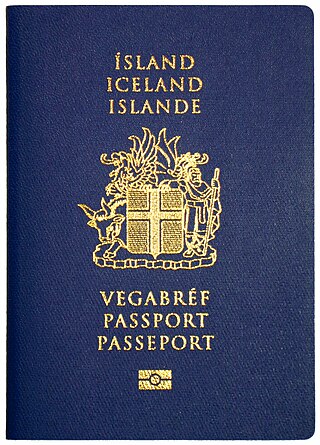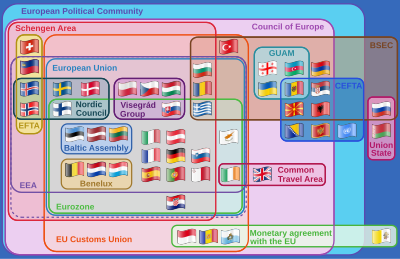
A private military company (PMC) or private military and security company (PMSC) is a private company providing armed combat or security services for financial gain. PMCs refer to their personnel as "security contractors" or "private military contractors".

KBR, Inc. is a U.S. based company operating in fields of science, technology and engineering.

Foreign workers or guest workers are people who work in a country other than one of which they are a citizen. Some foreign workers use a guest worker program in a country with more preferred job prospects than in their home country. Guest workers are often either sent or invited to work outside their home country or have acquired a job before leaving their home country, whereas migrant workers often leave their home country without a specific job in prospect.

A migrant worker is a person who migrates within a home country or outside it to pursue work. Migrant workers usually do not have an intention to stay permanently in the country or region in which they work.
Illegal immigration is the migration of people into a country in violation of that country's immigration laws, or the continuous residence in a country without the legal right to do so. Illegal immigration tends to be financially upward, from poorer to richer countries. Illegal residence in another country creates the risk of detention, deportation, and other imposed sanctions.
Prostitution is illegal in Saudi Arabia, and is punishable by imprisonment and fines. Flogging was also a possible punishment until April 2020 when it was abolished by the order of the Saudi Supreme Court General Commission. Foreign nationals are also deported after punishment. If the parties are also charged with adultery, fornication and sodomy, which can apply to both the prostitute and the client since all sexual activity outside a lawful marriage is illegal, the punishment can be death.

The visa policy of the Schengen Area is a component within the wider area of freedom, security and justice policy of the European Union. It applies to the Schengen Area and to other EU member states except Ireland. The visa policy allows nationals of certain countries to enter the Schengen Area via air, land or sea without a visa for up to 90 days within any 180-day period. Nationals of certain other countries are required to have a visa to enter and, in some cases, transit through the Schengen area.

The blue card is an approved EU-wide work permit allowing highly skilled non-EU citizens to work and live in 25 of the 27 countries within the European Union excluding Denmark and Ireland, which are not subject to the proposal. However, according to new rules, if it is a business trip, it does allow entry to a Schengen area member country if the country issuing the Blue Card is not a member of the Schengen area. The term Blue Card was coined by the think tank Bruegel, inspired by the United States' green card and making reference to the European flag which is blue with twelve golden stars.

In general, the law of the European Union is valid in all of the twenty-seven European Union member states. However, occasionally member states negotiate certain opt-outs from legislation or treaties of the European Union, meaning they do not have to participate in certain policy areas. Currently, three states have such opt-outs: Denmark, Ireland and Poland. The United Kingdom had four opt-outs before leaving the Union.

The Schengen Area is an area encompassing 29 European countries that have officially abolished border controls at their mutual borders. Being an element within the wider area of freedom, security and justice policy of the European Union (EU), it mostly functions as a single jurisdiction under a common visa policy for international travel purposes. The area is named after the 1985 Schengen Agreement and the 1990 Schengen Convention, both signed in Schengen, Luxembourg.
Offsets are compensatory trade agreements, reciprocal trade agreements, between an exporting foreign company, or possibly a government acting as intermediary, and an importing entity. Offset agreements often involve trade in military goods and services and are alternatively called: industrial compensations, industrial cooperation, offsets, industrial and regional benefits, balances, juste retour or equilibrium, to define mechanisms more complex than counter-trade. Counter-trade can also be considered one of the many forms of defense offset, to compensate a purchasing country. The incentive for the exporter results from the conditioning of the core transaction to the acceptance of the offset obligation.

On 1 January 2007, Bulgaria and Romania became member states of the European Union (EU) in the fifth wave of EU enlargement.
Bahrain ratified the 2000 UN TIP Protocol in June 2004.
Belgium is a source, destination, and transit country for men, women, and children subjected to trafficking in persons, specifically forced labor and forced prostitution. Victims originate in Eastern Europe, Africa, East Asia, as well as Brazil and India. Some victims are smuggled through Belgium to other European countries, where they are subjected to forced labor and forced prostitution. Male victims are subjected to forced labor and exploitation in restaurants, bars, sweatshops, horticulture sites, fruit farms, construction sites, and retail shops. There were reportedly seven Belgian women subjected to forced prostitution in Luxembourg in 2009. According to a 2009 ECPAT Report, the majority of girls and children subjected to forced prostitution in Belgium originate from Balkan and CIS countries, Eastern Europe, Asia and West Africa ; some young foreign boys are exploited in prostitution in major cities in the country. Local observers also report that a large portion of children trafficked in Belgium are unaccompanied, vulnerable asylum seekers and refugees. Criminal organizations from Thailand use Thai massage parlors in Belgium, which are run by Belgian managers, to sexually exploit young Thai women. These networks are involved in human smuggling and trafficking to exploit victims economically and sexually. Belgium is not only a destination country, but also a transit country for children to be transported to other European country destinations.
Oman ratified the 2000 UN TIP Protocol in May 2005.
Iraq ratified the 2000 UN TIP Protocol in February 2009.
Human trafficking in the Ivory Coast referred to the practice of forced labour and commercial sexual exploitation which used Côte d'Ivoire a source, transit, and destination country for women and children who were trafficked for these purposes.

The European Union Agency for the Operational Management of Large-Scale IT Systems in the Area of Freedom, Security and Justice (eu-LISA) is an agency of the European Union (EU) that was founded in 2011 to ensure the uninterrupted operation of large-scale IT systems within the area of freedom, security and justice (AFSJ), that are instrumental in the implementation of the asylum, border management and migration policies of the EU. It began its operational activities on 1 December 2012.

Passports of the EFTA member states are passports issued by the European Free Trade Association (EFTA) member states Iceland, Liechtenstein, Norway and Switzerland. EFTA is in this article used as a common name for these countries.

The United Kingdom was a member state of the European Union and of its predecessor the European Communities from 1973 until 2020. Since the foundation of the European Communities, it has been an important neighbour, and was a leading member state until its withdrawal from the EU on 31 January 2020 as a result of Brexit, ending 47 years of membership.














